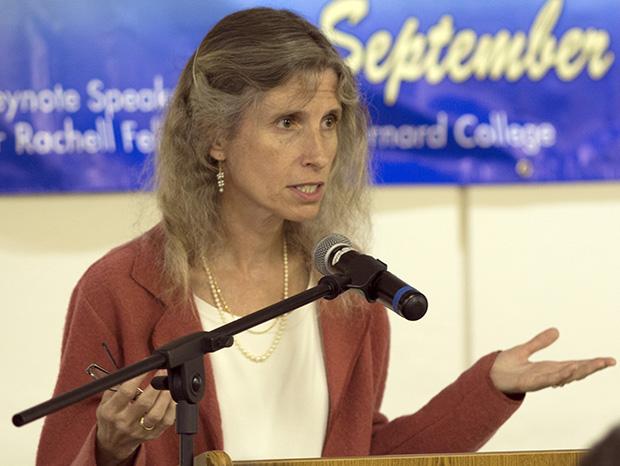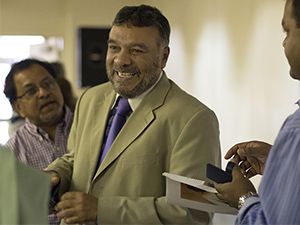
The Religious Studies Department hosted its 7th annual Kazi Nazrul Islam lecture on Sept. 12th in the USU West Valley Room.
The lecturer was keynote speaker Dr. Rachel Fell McDermott, professor and chair of Barnard College Asian and Middle Eastern cultures department.
McDermott specializes in the religious traditions of the Bengal region in India and has published four books and many articles focusing on religion, power, and economics in India, according to the Barnard College website.
Dr. Phyllis K. Herman, department of religious studies professor and coordinator of the annual lectures, said McDermott is a well respected speaker and the right person to discuss Kazi Nazrul Islam, Bengal’s famous national poet’s life and work.
McDermott said Kazi Nazrul Islam, who was popularly known as Nazul, is a shocking and groundbreaking poet whose literature has demonstrated something nobody else has been able to achieve.
“He deeply cared to take a broad view of society to include all people in it,” said McDermott. “Which I think is a monumental point [that] he suffered for and which he was lauded for.”
McDermott’s passion for Nazrul’s work has led her to devote her energy in the last few years to working on a project about the Bengali national poet.
Kazi Belal, chief coordinator for the Nazrul Endowment Program at CSUN, and Dr. Herman, are responsible for bringing attention to Nazrul’s work and legacy at CSUN. Their partnership began in 2002 because of Belal’s passion for Nazrul’s work.
Herman said the lectureship program is part of a broader long-term goal to one day fund a faculty department in Bengal Arts and Literature at CSUN. The program has raised close to $50,000 since its start in 2003. Herman said the program has a long yet hopeful way to go before becoming fully established at CSUN.

The lecture provided many details and insights into Nazrul’s celebrated and controversial life. Nazrul, a Muslim, was famous for infusing both Muslim and Hindu imagery into his life and work to knock down barriers between Muslims and Hindus.
Nazrul’s life was often marred by tragedy and poverty. His output of work diminished due to an illness that mysteriously led to his inability to write and produce new works beyond the age of 43.
Nazrul, who died in 1976, is well known for his unorthodox views and open mindedness – regarding his marriage to a Hindu woman and his decision to give his sons double barreled Hindu and Muslim names. This philosophy that Nazrul devoted his life to was met with raised eyebrows from both Hindu and Muslims throughout his life.
Also in attendance was Muhammed Enayet Ossain, consulate general of Bangladesh. Ossain spoke for a few minutes about the language and impact of Islam’s work and invited the attendees to the Kazi Nazrul Islam fundraiser and cultural event being held at CSUN on Sept. 14.






